TRACE YOUR PRODUCTS
K Group is constantly striving to improve the transparency of its purchasing chains. On this website, our customers can find out more about where the products they purchase from K Group stores come from.
Where do mywear t-shirts, Pirkka and K-Menu tuna products, Pirkka Fairtrade roses, and PROF Timber sold in our stores come from? We want to increase the transparency of our purchasing chains by providing information on the origin of our products and their journey to our stores. Choose a product to find out more.
The banana is the world’s most popular fruit, and is also a firm favourite in K Group grocery stores. All organic Pirkka Luomu bananas are also Fairtrade-certified.

There are thousands of different varieties of banana in the world. However, the vast majority of bananas sold in grocery stores are Cavendish bananas, including the organic Pirkka Luomu Fairtrade bananas.
Fairtrade improves the position of small farmers and farm workers, and offers them a means of achieving a better and more stable standard of living. Fairtrade also promotes climate- and environmentally-friendly production methods.
The organic logo indicates that the food has been produced in accordance with the organic standards of the EU without using any herbicides, sweeteners and flavourings by recycling nutrients, conserving natural resources and respecting biodiversity.
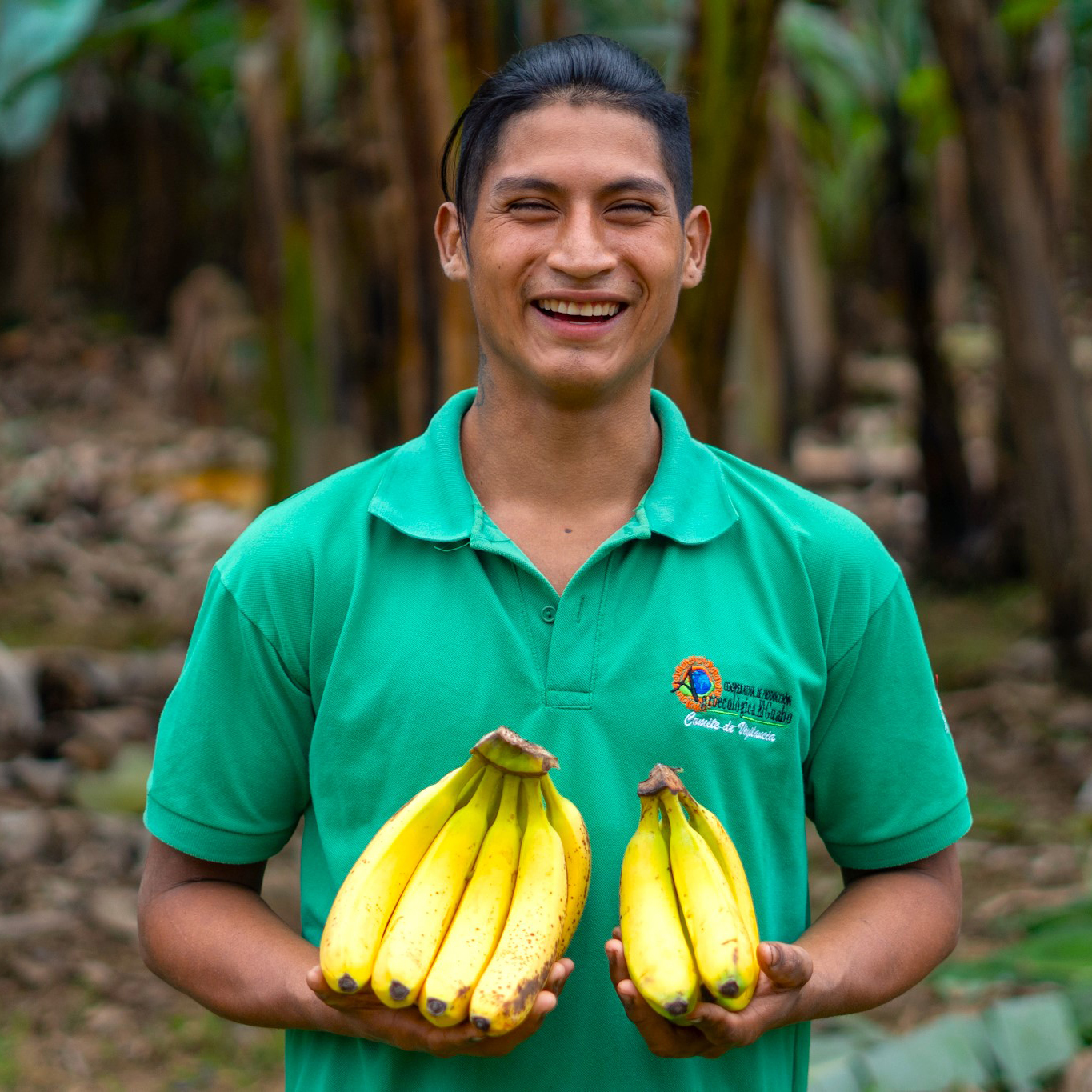
Samuel is a representative of the younger generation of banana producers. Photo: Guillermo Granja / Fairtrade
Pirkka Luomu Fairtrade bananas are grown in Ecuador on Fairtrade-certified farms.
Ecuador is the world’s largest exporter of bananas and the second largest producer of Fairtrade bananas. A humid, tropical climate combined with rich soil makes Ecuador an ideal place to grow bananas.
In Ecuador, more than 74 % of Fairtrade bananas are grown by cooperatives formed by smallholdings, and 26 % on large farms. Both the number of certified cooperatives and the number of large farms have increased, and in recent years the increase in the number of large farms has been faster.
From a sustainability perspective, the mode of production matters: on plantations, the most common human rights challenges are related to workers’ wages and working conditions, while in the case of smallholdings the question is of the level of income of the farmers.
Pirkka Luomu Fairtrade bananas are grown in Ecuador, where they are picked about nine months after planting. First, the bananas are transported by lorry from the plantation to the port of Machala, where they are loaded onto a ship bound for Manzanillo in Panama. From Manzanillo, the bananas continue their journey onboard an ocean-going vessel to Germany, either to the port of Bremerhaven or the port of Hamburg, from where the containers are loaded again onto a vessel bound for Helsinki. It takes about five weeks for the bananas to travel from the plantation to Finland.
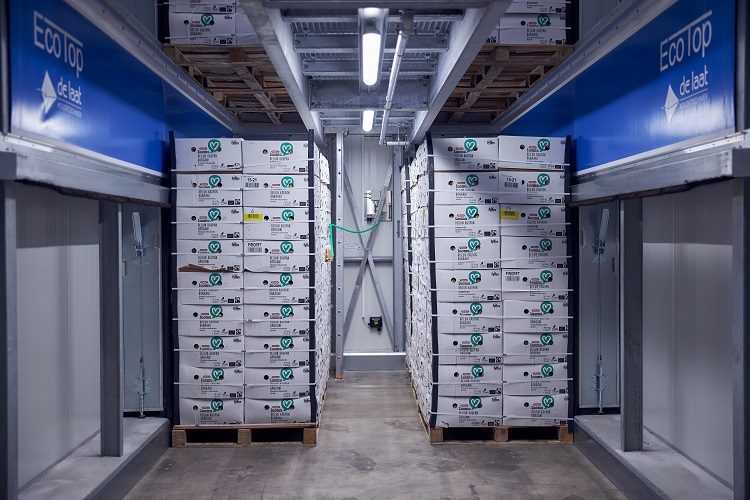
When arriving in Finland, the bananas are still green and raw. All bananas sold in K Group grocery stores are ripened at the K Group banana ripening plant in Hakkila, Vantaa. The banana ripening plant has 30 ripening rooms that can hold almost a million kilograms of bananas.
The ripening process is initiated by subjecting the bananas to heat and ethylene gas, which is naturally present in the fruit. The ripening of bananas takes some 4–8 days, and the temperature in the ripening room varies between 12 and 20 degrees Celsius. When ripening, the bananas take on their familiar yellow colour, and their flavour changes from bitter to sweet. The quality of the bananas is verified upon arrival, during ripening and in connection with delivery.
Banana production has become more challenging due to climate change and the extreme weather conditions it causes. Drought increases the need for irrigation, while excessive moisture increases the risk of diseases. Investing in environmentally sustainable production methods is important to ensure that banana cultivation can continue in the future.
Organic production has environmental advantages over conventional production methods. Organic fields have greater biodiversity and organic cultivation maintains soil fertility better than conventional cultivation methods. Sustainable farming practices, catch crops and crop rotation also have a positive impact on carbon sequestration.
Fairtrade promotes environmentally friendly banana production in many ways. Several of the Fairtrade criteria address environmental issues. To be able to sell their products as Fairtrade products, farms must, among other things, protect forests, reduce their climate emissions, as well as reduce the consumption of energy and water and the use of pesticides and fertilisers.
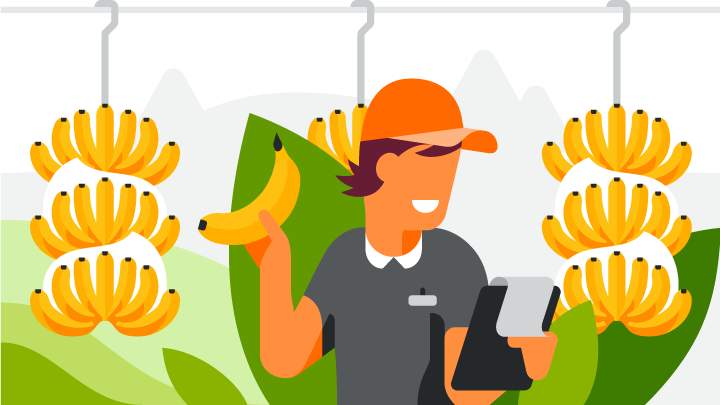
ENVIRONMENTAL EDUCATION FOR FARMERS
Independent assessments have shown that education provided by Fairtrade has a significant impact on farmers’ environmental awareness and related actions. Furthermore, Fairtrade farmer networks promote the exchange of ideas between farmers and learning from best practices.
CERTIFIED RESPONSIBILITY
Fairtrade production must comply with strict regulations that protect both farmers and nature. Compliance with the criteria is monitored throughout the production chain through independent audits. The Fairtrade monitoring system has been awarded the ISO 17065 standard, which is an indication of impartial and transparent control.
Fairtrade bananas are grown in developing producer countries where Fairtrade works to ensure that farmers and workers have enough to live on. At least the guaranteed Fairtrade price is always paid for Fairtrade bananas, plus a Fairtrade Premium.
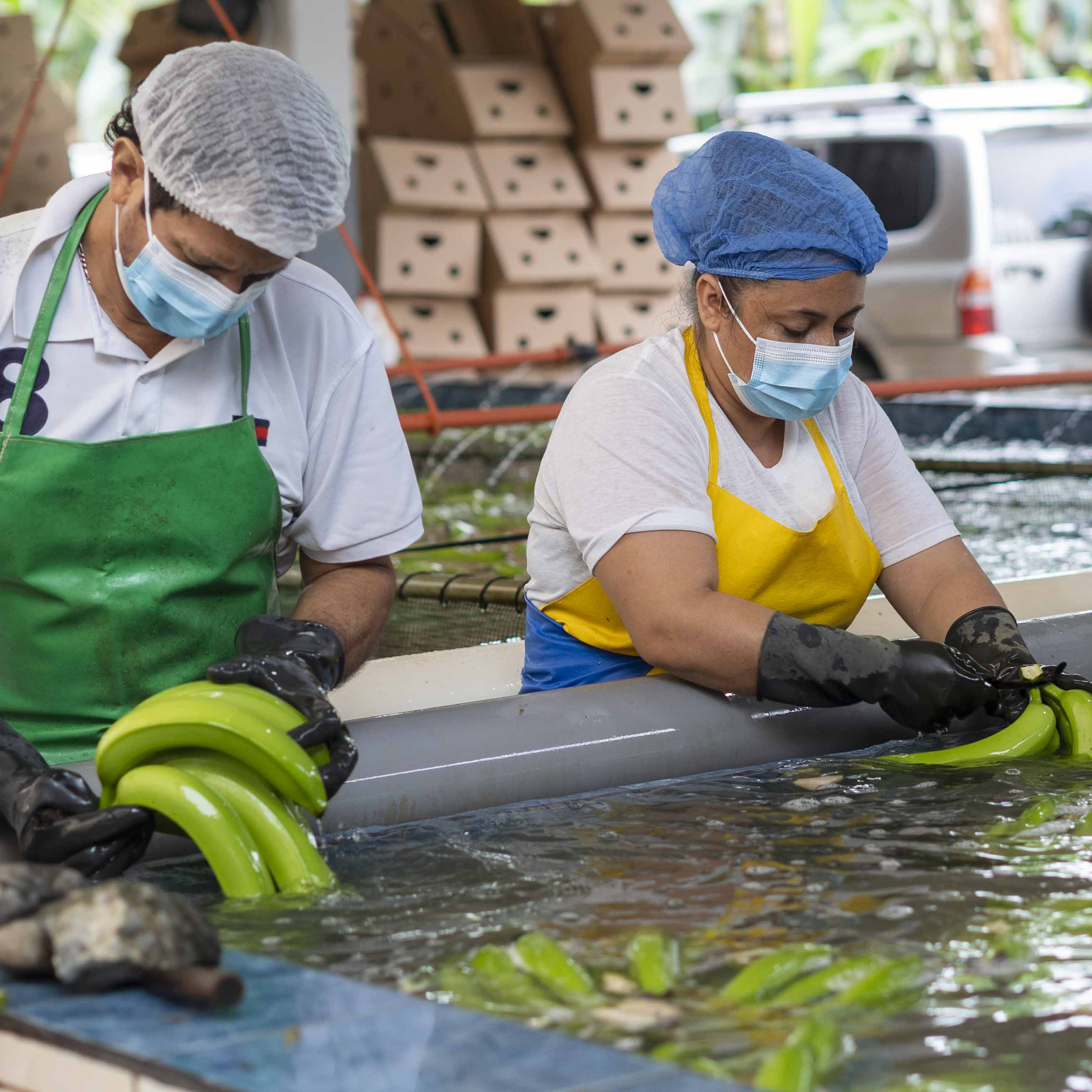
Photo: Guillermo Granja, Fairtrade
Pirkka Fairtrade bananas have generated more than €2 million in Fairtrade Premiums between 2009 and 2024. On banana plantations, decisions on the use of the Fairtrade Premium are made democratically by the farmers and workers together. The funds are intended for the social or economic development of the community.
The Fairtrade Premium has been used for many purposes by banana farms:
Organic Pirkka Luomu Fairtrade bananas come from selected banana farms. Tierra Fértil and Las Guayas are two of the most important recent growers of organic Pirkka Luomu Fairtrade bananas.
Carmita Gía, 65, has had a long career in banana farming. Carmita, who comes from a poor background, started growing bananas 18 years ago on a rented farm of about three hectares. Nine years ago, Carmita joined the Tierra Fértil cooperative, a decision she has been happy with. Carmita now has her own 12-hectare banana plantation, and she employs almost 15 people in total. All of Carmita’s adult children also work on the farm.
Like the other members of the Tierra Fértil cooperative, Carmita also practices organic farming. Carmita is a strong advocate of organic farming and is pleased that farmers are getting a better price for organic products.
According to Carmita, Fairtrade has had many positive effects. For example, the Fairtrade Premium has been used to set up a medical clinic from which Carmita and her family can receive healthcare services. Even though the COVID-19 pandemic was challenging, Carmita is happy that all members of the cooperative had access to face masks and vaccination against the disease.
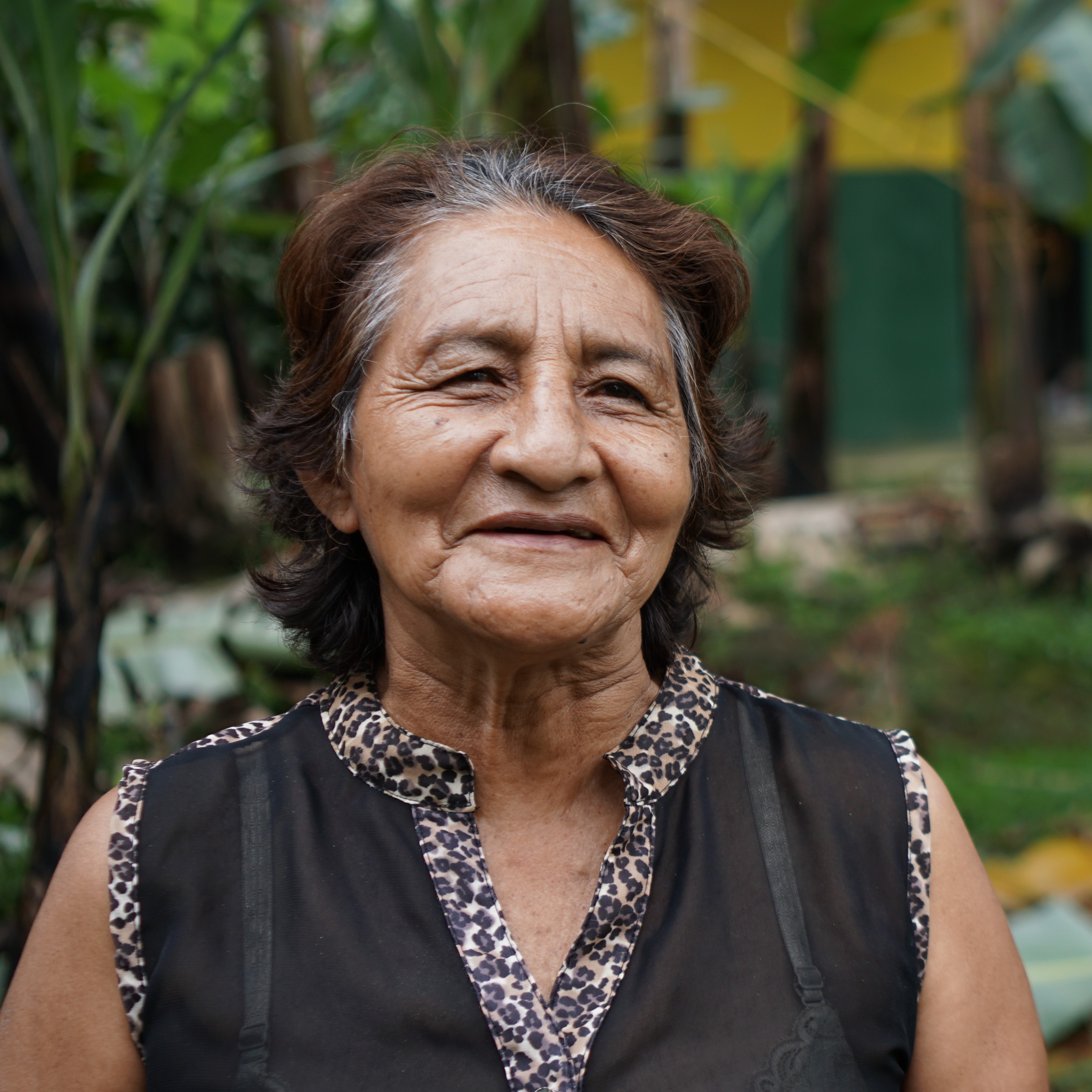
Photo: Willy Paredes/Fairtrade
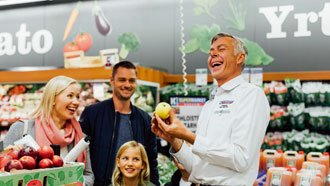
Kesko Corporation is the only company in the world to have been included on the Global 100 Most Sustainable Corporations in the World list by Corporate Knights every year since the list was first established in 2005.
Read more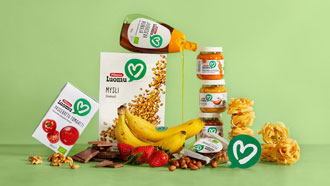
Do you have questions about the origin or qualities of Pirkka products? Contact K Consumer Service by phone on 0800- 0- 1000 or via email at kuluttajapalvelu(at)kesko.fi.
Read more
International Fairtrade began in the 1980s. The first Fairtrade product in the Pirkka range was Pirkka Fairtrade coffee, introduced in 1999.
Read moreWould you like to learn more about another product? See here for the products: